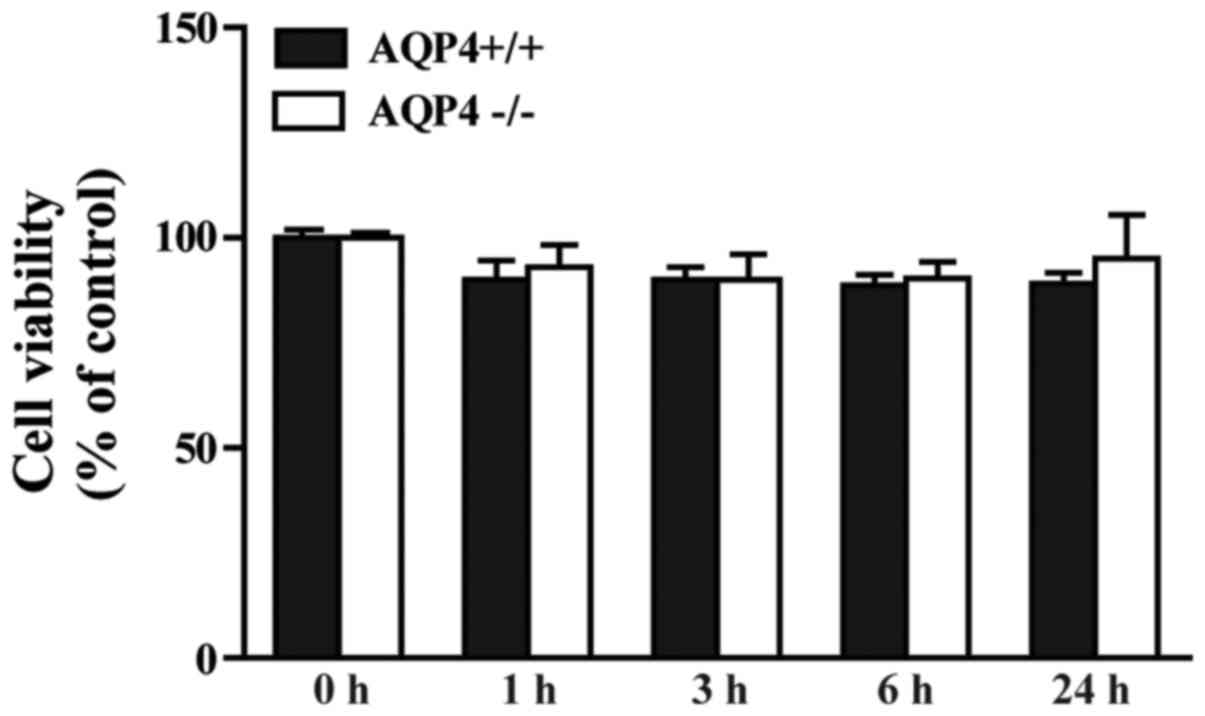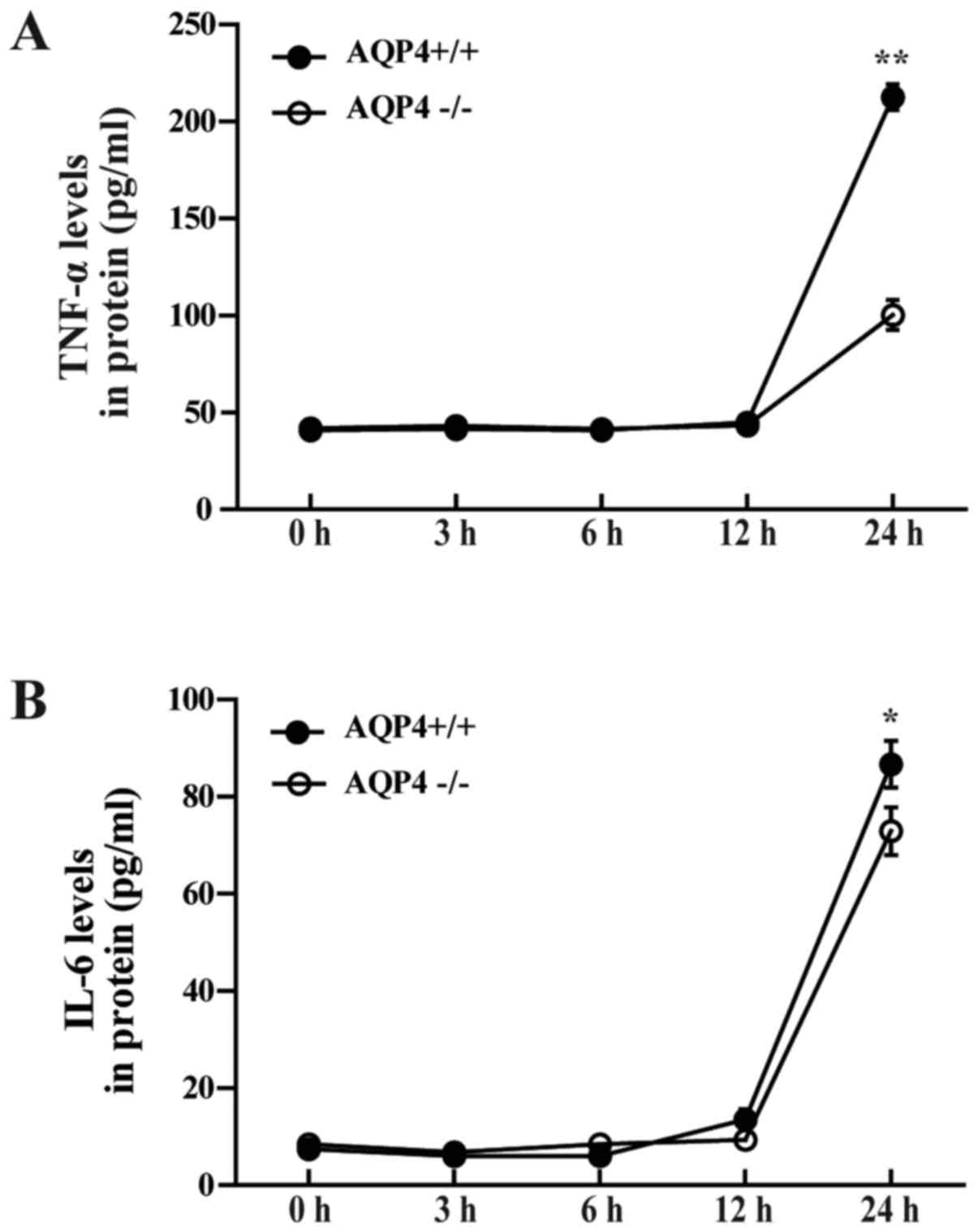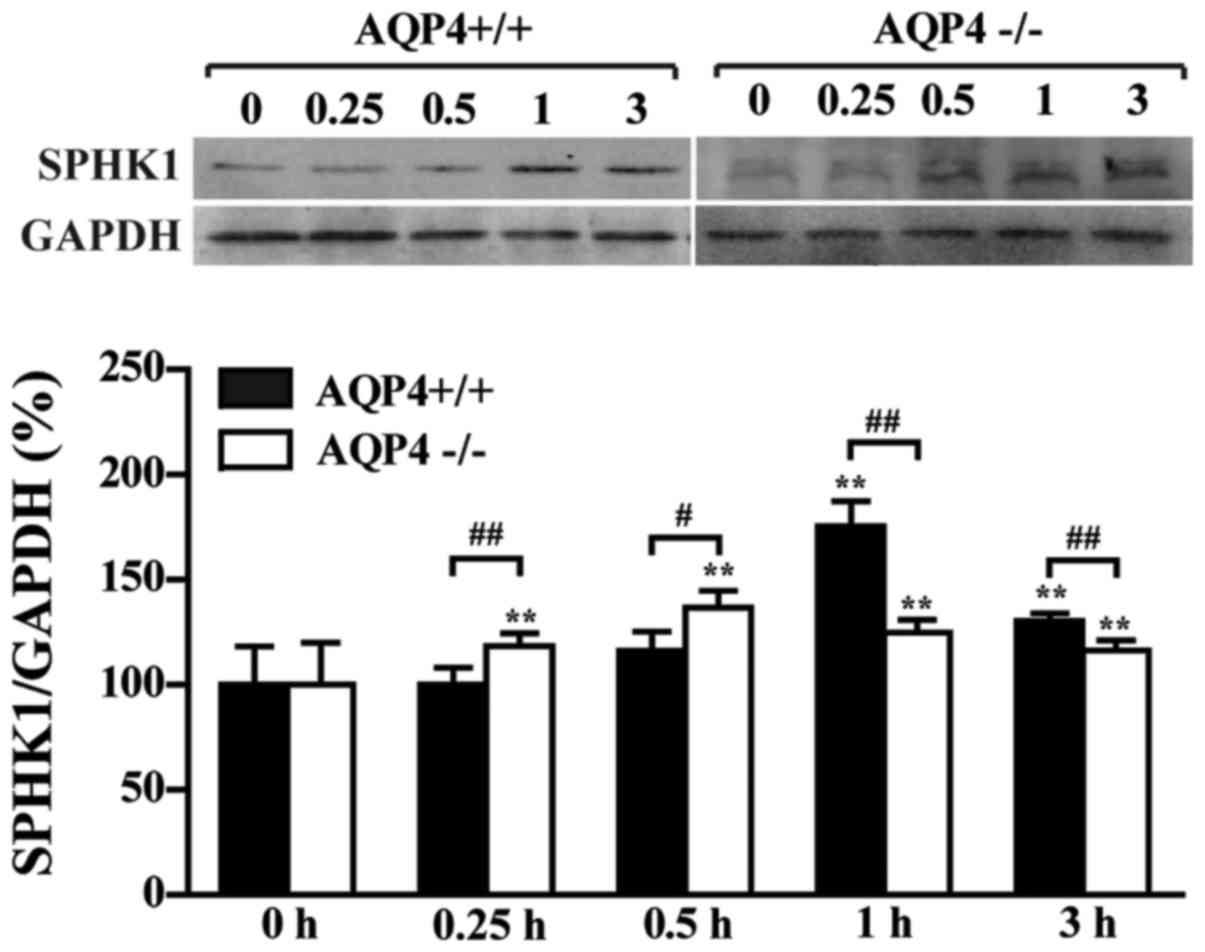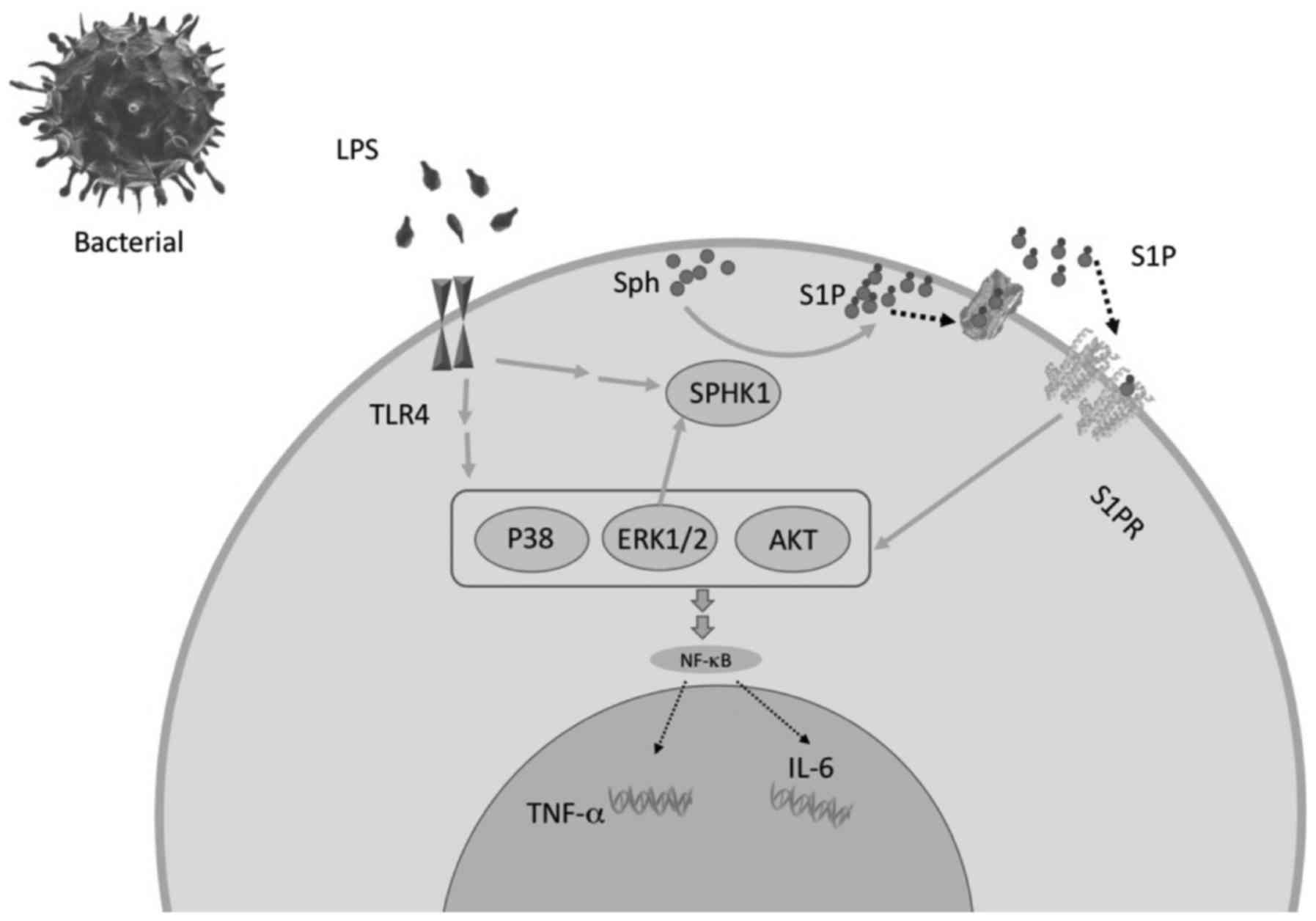|
1
|
Connolly BS and Lang AE: Pharmacological
treatment of Parkinson disease: a review. JAMA. 311:1670–1683.
2014. View Article : Google Scholar : PubMed/NCBI
|
|
2
|
De Strooper B and Karran E: The cellular
phase of Alzheimer's disease. Cell. 164:603–615. 2016. View Article : Google Scholar : PubMed/NCBI
|
|
3
|
Procaccini C, Santopaolo M, Faicchia D,
Colamatteo A, Formisano L, de Candia P, Galgani M, De Rosa V and
Matarese G: Role of metabolism in neurodegenerative disorders.
Metabolism. 65:1376–1390. 2016. View Article : Google Scholar : PubMed/NCBI
|
|
4
|
Sastre M, Klockgether T and Heneka MT:
Contribution of inflammatory processes to Alzheimer's disease:
molecular mechanisms. Int J Dev Neurosci. 24:167–176. 2006.
View Article : Google Scholar : PubMed/NCBI
|
|
5
|
Winklewski PJ, Radkowski M,
Wszedybyl-Winklewska M and Demkow U: Brain inflammation and
hypertension: the chicken or the egg? J Neuroinflammation.
12:852015. View Article : Google Scholar : PubMed/NCBI
|
|
6
|
Hennessy E, Griffin ÉW and Cunningham C:
Astrocytes are primed by chronic neurodegeneration to produce
exaggerated chemokine and cell infiltration responses to acute
stimulation with the cytokines IL-1β and TNF-α. J Neurosci.
35:8411–8422. 2015. View Article : Google Scholar : PubMed/NCBI
|
|
7
|
Cho ML, Min SY, Chang SH, Kim KW, Heo SB,
Lee SH, Park SH, Cho CS and Kim HY: Transforming growth factor beta
1 (TGF-beta1) down-regulates TNFalpha-induced RANTES production in
rheumatoid synovial fibroblasts through NF-kappaB-mediated
transcriptional repression. Immunol Lett. 105:159–166. 2006.
View Article : Google Scholar : PubMed/NCBI
|
|
8
|
Song TT, Bi YH, Gao YQ, Huang R, Hao K, Xu
G, Tang JW, Ma ZQ, Kong FP, Coote JH, et al: Systemic
pro-inflammatory response facilitates the development of cerebral
edema during short hypoxia. J Neuroinflammation. 13:632016.
View Article : Google Scholar : PubMed/NCBI
|
|
9
|
Ikeshima-Kataoka H: Neuroimmunological
implications of AQP4 in astrocytes. Int J Mol Sci. 17:172016.
View Article : Google Scholar
|
|
10
|
De Pittà M, Brunel N and Volterra A:
Astrocytes: orchestrating synaptic plasticity? Neuroscience.
323:43–61. 2016. View Article : Google Scholar
|
|
11
|
Yool AJ: Aquaporins: multiple roles in the
central nervous system. Neuroscientist. 13:470–485. 2007.
View Article : Google Scholar : PubMed/NCBI
|
|
12
|
Szu JI and Binder DK: The role of
astrocytic aquaporin-4 in synaptic plasticity and learning and
memory. Front Integr Nuerosci. 10:82016. View Article : Google Scholar
|
|
13
|
Eckhard A and Löwenheim H: Water
regulation in the cochlea: do molecular water channels facilitate
potassium-dependent sound transduction? HNO. 62:423–431. 2014.In
German. View Article : Google Scholar : PubMed/NCBI
|
|
14
|
Wu Q, Zhang YJ, Gao JY, Li XM, Kong H,
Zhang YP, Xiao M, Shields CB and Hu G: Aquaporin-4 mitigates
retrograde degeneration of rubrospinal neurons by facilitating
edema clearance and glial scar formation after spinal cord injury
in mice. Mol Neurobiol. 49:1327–1337. 2014. View Article : Google Scholar : PubMed/NCBI
|
|
15
|
Katada R, Akdemir G, Asavapanumas N,
Ratelade J, Zhang H and Verkman AS: Greatly improved survival and
neuroprotection in aquaporin-4-knockout mice following global
cerebral ischemia. FASEB J. 28:705–714. 2014. View Article : Google Scholar :
|
|
16
|
Manley GT, Fujimura M, Ma T, Noshita N,
Filiz F, Bollen AW, Chan P and Verkman AS: Aquaporin-4 deletion in
mice reduces brain edema after acute water intoxication and
ischemic stroke. Nat Med. 6:159–163. 2000. View Article : Google Scholar : PubMed/NCBI
|
|
17
|
Kim EK and Choi EJ: Compromised MAPK
signaling in human diseases: an update. Arch Toxicol. 89:867–882.
2015. View Article : Google Scholar : PubMed/NCBI
|
|
18
|
Lee DH, Jeon BT, Jeong EA, Kim JS, Cho YW,
Kim HJ, Kang SS, Cho GJ, Choi WS and Roh GS: Altered expression of
sphingosine kinase 1 and sphingosine-1-phosphate receptor 1 in
mouse hippocampus after kainic acid treatment. Biochem Biophys Res
Commun. 393:476–480. 2010. View Article : Google Scholar : PubMed/NCBI
|
|
19
|
Lee YK, Kim HL, Kim YL and Im DS: Multiple
actions of dimethylsphingosine in 1321N1 astrocytes. Mol Cells.
23:11–16. 2007.PubMed/NCBI
|
|
20
|
Li J, Guan HY, Gong LY, Song LB, Zhang N,
Wu J, Yuan J, Zheng YJ, Huang ZS and Li M: Clinical significance of
sphingosine kinase-1 expression in human astrocytomas progression
and overall patient survival. Clin Cancer Res. 14:6996–7003. 2008.
View Article : Google Scholar : PubMed/NCBI
|
|
21
|
Wu YP, Mizugishi K, Bektas M, Sandhoff R
and Proia RL: Sphingosine kinase 1/S1P receptor signaling axis
controls glial proliferation in mice with Sandhoff disease. Hum Mol
Genet. 17:2257–2264. 2008. View Article : Google Scholar : PubMed/NCBI
|
|
22
|
Izaki S, Narukawa S, Kubota A, Mitsui T,
Fukaura H and Nomura K: A case of neuromyelitis optica spectrum
disorder developing a fulminant course with multiple white-matter
lesions following fingolimod treatment. Rinsho Shinkeigaku.
53:513–517. 2013.In Japanese. View Article : Google Scholar
|
|
23
|
Lopes Pinheiro MA, Kooij G, Mizee MR,
Kamermans A, Enzmann G, Lyck R, Schwaninger M, Engelhardt B and de
Vries HE: Immune cell trafficking across the barriers of the
central nervous system in multiple sclerosis and stroke. Biochim
Biophys Acta. 1862:461–471. 2016. View Article : Google Scholar
|
|
24
|
Jangra A, Sriram CS and Lahkar M:
Lipopolysaccharide-induced behavioral alterations are alleviated by
sodium phenylbutyrate via attenuation of oxidative stress and
neuroinflammatory cascade. Inflammation. 39:1441–1452. 2016.
View Article : Google Scholar : PubMed/NCBI
|
|
25
|
Park SY, Kim YH and Park G:
Anti-neuro-inflammatory effects of Nardostachys chinensis in
lipopolysaccharide-and lipoteichoic acid-stimulated microglial
cells. Chin J Nat Med. 14:343–353. 2016.PubMed/NCBI
|
|
26
|
Chung WS, Allen NJ and Eroglu C:
Astrocytes control synapse formation, function, and elimination.
Cold Spring Harb Perspect Biol. 7:a0203702015. View Article : Google Scholar : PubMed/NCBI
|
|
27
|
Nagelhus EA and Ottersen OP: Physiological
roles of aquaporin-4 in brain. Physiol Rev. 93:1543–1562. 2013.
View Article : Google Scholar : PubMed/NCBI
|
|
28
|
Rannikko EH, Weber SS and Kahle PJ:
Exogenous α-synuclein induces toll-like receptor 4 dependent
inflammatory responses in astrocytes. BMC Neurosci. 16:572015.
View Article : Google Scholar
|
|
29
|
Laird MD, Shields JS, Sukumari-Ramesh S,
Kimbler DE, Fessler RD, Shakir B, Youssef P, Yanasak N, Vender JR
and Dhandapani KM: High mobility group box protein-1 promotes
cerebral edema after traumatic brain injury via activation of
toll-like receptor 4. Glia. 62:26–38. 2014. View Article : Google Scholar
|
|
30
|
Sun H, Liang R, Yang B, Zhou Y, Liu M,
Fang F, Ding J, Fan Y and Hu G: Aquaporin-4 mediates communication
between astrocyte and microglia: implications of neuroinflammation
in experimental Parkinson's disease. Neuroscience. 317:65–75. 2016.
View Article : Google Scholar : PubMed/NCBI
|
|
31
|
Li L, Zhang H, Varrin-Doyer M, Zamvil SS
and Verkman AS: Proinflammatory role of aquaporin-4 in autoimmune
neuroinflammation. FASEB J. 25:1556–1566. 2011. View Article : Google Scholar : PubMed/NCBI
|
|
32
|
Ikeshima-Kataoka H, Abe Y, Abe T and Yasui
M: Immunological function of aquaporin-4 in stab-wounded mouse
brain in concert with a pro-inflammatory cytokine inducer,
osteopontin. Mol Cell Neurosci. 56:65–75. 2013. View Article : Google Scholar : PubMed/NCBI
|
|
33
|
Alexander JJ, Jacob A, Cunningham P,
Hensley L and Quigg RJ: TNF is a key mediator of septic
encephalopathy acting through its receptor, TNF receptor-1.
Neurochem Int. 52:447–456. 2008. View Article : Google Scholar
|
|
34
|
Maceyka M, Harikumar KB, Milstien S and
Spiegel S: Sphingosine-1-phosphate signaling and its role in
disease. Trends Cell Biol. 22:50–60. 2012. View Article : Google Scholar :
|
|
35
|
Pchejetski D, Nunes J, Coughlan K, Lall H,
Pitson SM, Waxman J and Sumbayev VV: The involvement of sphingosine
kinase 1 in LPS-induced Toll-like receptor 4-mediated accumulation
of HIF-1α protein, activation of ASK1 and production of the
pro-inflammatory cytokine IL-6. Immunol Cell Biol. 89:268–274.
2011. View Article : Google Scholar
|
|
36
|
Liang J, Nagahashi M, Kim EY, Harikumar
KB, Yamada A, Huang WC, Hait NC, Allegood JC, Price MM, Avni D, et
al: Sphingosine-1-phosphate links persistent STAT3 activation,
chronic intestinal inflammation, and development of
colitis-associated cancer. Cancer Cell. 23:107–120. 2013.
View Article : Google Scholar : PubMed/NCBI
|
|
37
|
Grin'kina NM, Karnabi EE, Damania D,
Wadgaonkar S, Muslimov IA and Wadgaonkar R: Sphingosine kinase 1
deficiency exacerbates LPS-induced neuroinflammation. PLoS One.
7:e364752012. View Article : Google Scholar : PubMed/NCBI
|
|
38
|
Pitson SM: Regulation of sphingosine
kinase and sphingolipid signaling. Trends Biochem Sci. 36:97–107.
2011. View Article : Google Scholar
|
|
39
|
Arthur JS and Ley SC: Mitogen-activated
protein kinases in innate immunity. Nat Rev Immunol. 13:679–692.
2013. View Article : Google Scholar : PubMed/NCBI
|
|
40
|
Peti W and Page R: Molecular basis of MAP
kinase regulation. Protein Sci. 22:1698–1710. 2013. View Article : Google Scholar : PubMed/NCBI
|
|
41
|
Sabio G and Davis RJ: TNF and MAP kinase
signalling pathways. Semin Immunol. 26:237–245. 2014. View Article : Google Scholar : PubMed/NCBI
|
|
42
|
Lee M, McGeer E, Kodela R, Kashfi K and
McGeer PL: NOSH-aspirin (NBS-1120), a novel nitric oxide and
hydrogen sulfide releasing hybrid, attenuates neuroinflammation
induced by microglial and astrocytic activation: a new candidate
for treatment of neurodegenerative disorders. Glia. 61:1724–1734.
2013. View Article : Google Scholar : PubMed/NCBI
|
|
43
|
Lo JY, Kamarudin MN, Hamdi OA, Awang K and
Kadir HA: Curcumenol isolated from Curcuma zedoaria suppresses
Akt-mediated NF-κB activation and p38 MAPK signaling pathway in
LPS-stimulated BV-2 microglial cells. Food Funct. 6:3550–3559.
2015. View Article : Google Scholar : PubMed/NCBI
|
|
44
|
Bloch O, Papadopoulos MC, Manley GT and
Verkman AS: Aquaporin-4 gene deletion in mice increases focal edema
associated with staphylococcal brain abscess. J Neurochem.
95:254–262. 2005. View Article : Google Scholar : PubMed/NCBI
|
|
45
|
Papadopoulos MC, Manley GT, Krishna S and
Verkman AS: Aquaporin-4 facilitates reabsorption of excess fluid in
vasogenic brain edema. FASEB J. 18:1291–1293. 2004. View Article : Google Scholar : PubMed/NCBI
|
|
46
|
Fan Y, Kong H, Shi X, Sun X, Ding J, Wu J
and Hu G: Hypersensitivity of aquaporin 4-deficient mice to
1-methyl-4-phenyl-1,2,3,6-tetrahydropyrindine and astrocytic
modulation. Neurobiol Aging. 29:1226–1236. 2008. View Article : Google Scholar
|
|
47
|
Sun H, Liang R, Yang B, Zhou Y, Liu M,
Fang F, Ding J, Fan Y and Hu G: Aquaporin-4 mediates communication
between astrocyte and microglia: implications of neuroinflammation
in experimental Parkinson's disease. Neuroscience. 317:65–75. 2016.
View Article : Google Scholar : PubMed/NCBI
|



















